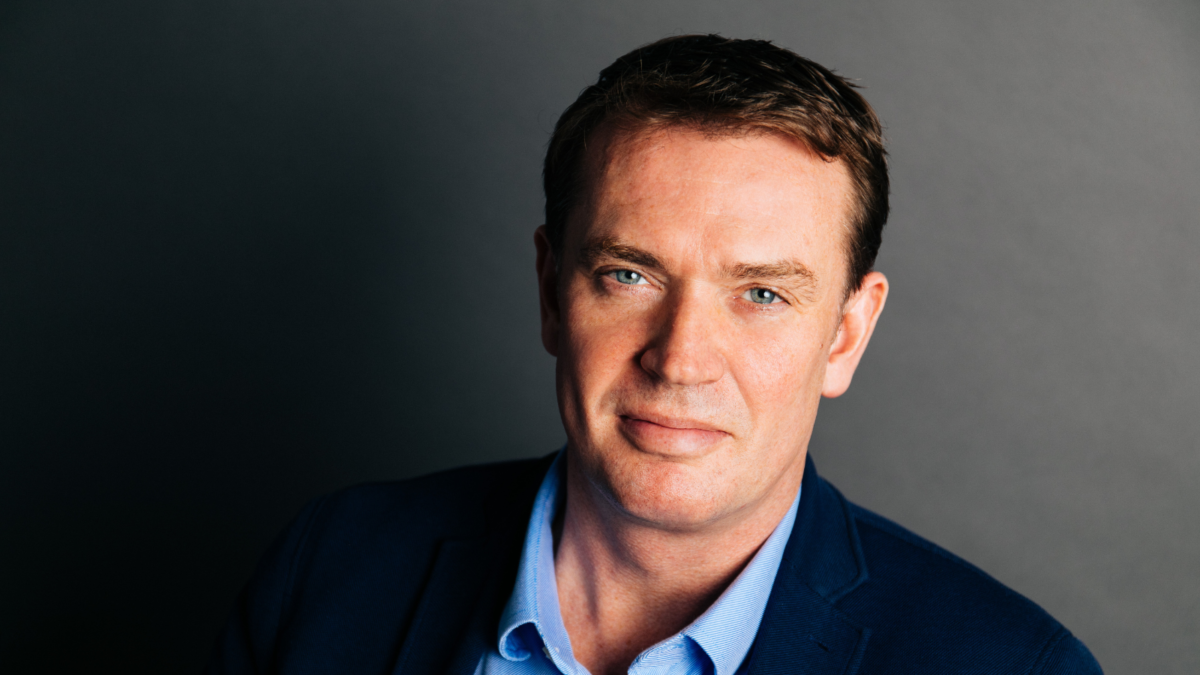‘Big, bold ambition’ pays off for Osmosis
Fourteen years ago, Ben Dear (pictured) sold a tech company he’d started and wanted to deploy the proceeds into a “great investment opportunity” – the transition to a more sustainable economy. The only problem was that everybody he went to had underperformed their benchmark. He instead started his own asset management firm, Osmosis. It wasn’t easy going.
“The premise was to identify companies that can create more economic value using less natural resources,” Dear says. “Really simple, really easy to understand. Who wouldn’t want to invest with a firm like that if they could link it to delivering better risk-adjusted returns? For the first five years I can tell you pretty much nobody wanted to give us money… But I dug a hole so deep I started to see sunlight coming out the other side.”
In the early days, Osmosis believed that identifying companies that managed their environmental balance sheet as well as their financial one would be “a proxy for a new form of quality management”, which would lead to an uncorrelated source of return. The investment thesis that spun from that “big bold ambition” was that companies that better manage their resources relative to the economic value they create are likely to outperform their peers in the long term.
“We either launched the firm too late or too early, depending on who you’re talking to,” Dear says. “The first green rush happened about five years before we launched the firm, where a lot of German doctors and dentists lost their money investing in solar and wind. But launching when we did allowed us time to dig into the data that we use and build a very coherent and replicable strategy supported by academic evidence.”
Fourteen years later, perseverance has paid off. Osmosis now manages 12 global and regional style-based long-only strategies and two market-neutral hedge funds and Dutch pension fund Pensioenfonds PGB recently awarded Osmosis a US$4.5 billion mandate for a customised, segregated version of its Resource Efficient Core Equity fund. The mandate doubled Osmosis’ assets to more than US$9 billion.
Depending on who you ask, it’s the largest new ESG equity mandates in history; the Financial Times, using data from MandateWire, put several mandates ahead of it, but these represent an existing sum moved to a new strategy from the same manager. The Osmosis team, after checking through Nasdaq’s eVestment, found pretty much the same thing.
“It took many years of working in collaboration (with PGB),” Dear says. “They didn’t want to go too quickly because the dynamics of the industry were changing. More data was becoming available, more data vendors were becoming available… They wanted to find a way to make sure that if they were taking a significant step that that risk was going to be rewarded, or at least have the opportunity to be awarded.”
“I think they selected us because we ticked three boxes: better risk adjusted returns, better management of the risk, and better accountability for the risk,” Dear says. “We were working in collaboration with the client to take them on this journey that governments and regulators are encouraging them to go on to further reduce the environmental risk that resides within that portfolio.”
Osmosis’ main client in Australia is Commonwealth Superannuation Corporation (CSC), which it picked up after five years of travelling Down Under when they “couldn’t get the guys around the corner (in London) to speak to us”. The business was won at the height of Covid, when fear dominated markets and it was difficult – if not impossible – to get in front of prospects.
“CSC said they could try and make it work, which we’ll always be grateful for,” Dear says. “A lot of asset owners do very little when there’s a drawdown in the market, except maybe do a strategic review and reallocate between existing managers where they’ve already done the ops due diligence. To bring onboard a new manager with only a couple of billion AUM was huge for us.”
Osmosis’ market-neutral strategies performed well through the ESG downturn of 2022, where other managers who had decided that fossil fuels weren’t ESG and tech stocks were saw their performance suffer (other strategies with lower tracking error to the benchmark generated smaller outperformance). To some extent, the downturn also shook an ESG fund industry based on product first, where billions of dollars was poured into Paris-aligned benchmarks on the strength of back tests, which had their first real test and failed.
“(The ESG downturn) wasn’t due to sustainability; it was mostly due to poor portfolio construction,” says Osmosis CIO Robbie Parker. “Huge misalignment of risk factors with other underlying exposures which are non-complementary to sustainability i.e. growth biases. What’s overweighting tech got to do with sustainability? People are starting to re-evaluate what they’ve invested into and these low carbon solutions they’ve had – what they’re actually delivering in terms of environmental consequence and risk and return. There’s going to be a large shake-up in the industry.”











